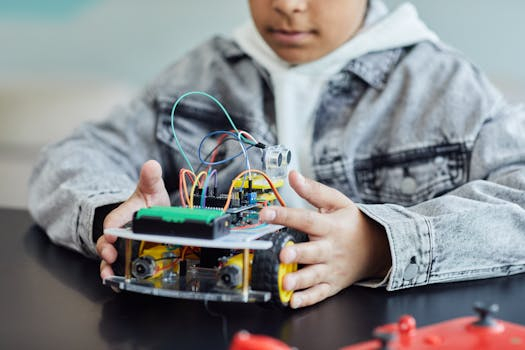Holistic Student Development Strategies
The topic of student development is often discussed in the education sector, but the approach to it has evolved over the years. Traditional methods focused solely on academic excellence, but now there is a growing recognition of the importance of developing students holistically. Holistic student development strategies aim to nurture not just academic success, but also personal growth and well-being. In this article, we will delve into what holistic student development is and some strategies that can help students reach their full potential.
What is Holistic Student Development?
Holistic student development is an approach based on the belief that students should be considered as whole beings and not just learners. It takes into account their intellectual, emotional, physical and spiritual well-being. This approach goes beyond just academic achievement and focuses on developing skills and qualities that will benefit students throughout their lives.
The Importance of Holistic Student Development
Traditional forms of education tend to prioritize academic performance and results. However, research has shown that a one-sided focus on academics can lead to a multitude of problems for students. By adopting a holistic approach, we can address these issues and promote healthier and more well-rounded individuals.
One key benefit of holistic student development is that it recognizes that each student is unique, with different strengths, weaknesses, and needs. By addressing all aspects of a student’s well-being, we can provide a more comprehensive and tailored education that caters to the individual.
Furthermore, the modern world requires individuals to have a range of skills in order to succeed. By nurturing other qualities alongside academic excellence, we can equip students with the tools they need to thrive in an ever-changing society.
Strategies for Holistic Student Development
1. Encourage Self-Reflection
One of the most important aspects of holistic student development is self-awareness. Encouraging students to reflect on their values, beliefs, and goals can help them develop a strong sense of self. This, in turn, can lead to greater confidence, self-motivation, and resilience.
Teachers can incorporate self-reflection activities into their lessons, such as journaling, mindfulness exercises, and class discussions on personal experiences. By creating a safe and supportive environment, students can explore their thoughts and emotions without fear of judgment.
2. Promote Physical Health
A healthy body is essential for a healthy mind. Physical activity can improve concentration, reduce stress and anxiety, and boost overall well-being. Including physical education classes and extracurricular activities in the curriculum can encourage students to lead an active lifestyle.
Moreover, healthy eating habits can also have a significant impact on a student’s well-being. Schools can provide access to nutritious meals and educate students about the importance of a balanced diet.
3. Mentorship Programs
A positive role model can have a significant influence on a student’s personal growth. Mentorship programs can provide valuable guidance and support for students, especially those who may not have a strong support system outside of school.
Mentors can offer advice, share their experiences, and provide a sounding board for students to express their thoughts and ideas. This can enhance self-esteem, develop critical thinking skills, and promote holistic development.
4. Encourage Creativity and Passion Pursuits
In the pursuit of academic excellence, students often overlook their interests and hobbies. However, creative outlets and passion pursuits can provide a sense of fulfillment and contribute to a student’s personal growth.
Schools can offer a wide range of extracurricular activities such as music, art, drama, and sports, allowing students to explore different areas of interest. Teachers can also incorporate creativity into their lessons and provide opportunities for students to express themselves in unique ways.
5. Focus on Social-Emotional Learning
Social-emotional learning (SEL) is an essential component of holistic student development. SEL focuses on building skills such as self-awareness, social awareness, responsible decision-making, and relationship building.
Through SEL, students can learn to manage their emotions, empathize with others, and develop positive relationships. This can have a significant impact on their overall emotional well-being and success in various aspects of their lives.
In Conclusion
Holistic student development strategies go beyond academic success and strive to unlock a student’s full potential. By nurturing the various aspects of a student’s well-being, we can create confident, well-rounded individuals who are equipped to navigate the challenges of the modern world. By incorporating these strategies into education, we can provide a more holistic and fulfilling learning experience for students.









